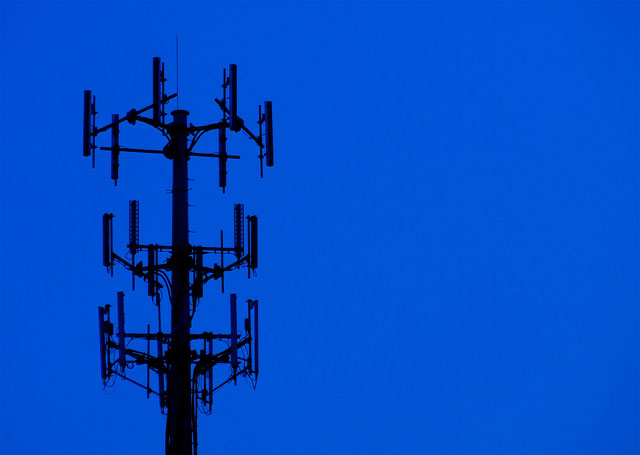Cities reluctant to reveal whether they’re using fake cell tower devices
Florida city rejects ACLU records request.

Here's what a bona fide cell tower looks like.
The “Stingray” itself is a trademarked product manufactured by a Florida-based company, the Harris Corporation. (It has since come to be used as a generic term, like Xerox or Kleenex.) Harris is notoriously secretive about the capabilities of its devices and generally won’t talk to the press about their capabilities or deployments. Earlier in March, the ACLU filed a motion for public access request, requesting documents and information related to stingray use by nearly 30 Florida police and sheriff's departments.
Among the responses published for the first time on Tuesday was the curious reply from the city of Sunrise, Florida, a town of about 88,000 people, just northwest of Miami.
Through its lawyers, Sunrise officially denied the request, noting that the city would neither confirm nor deny “whether any records responsive to the Request exist and, if any responsive records do exist, cannot and will not public disclose those records.” (In a footnote, the lawyers also cited this Ars story from September 2013 detailing stingrays and other related surveillance devices.) The ACLU published its response to the city's denial on Tuesday.
As the ACLU points out in a Tuesday blog post, the city of Sunrise has already published an invoice from Harris on its own website dated March 13, 2013, showing that the city paid over $65,000 for a stingray. That document clearly states, in all-caps on each page, that “disclosure of this document and the information it contains are strictly prohibited by Federal Law.”
Sunrise’s attorneys did not immediately respond to Ars’ request for comment explaining this discrepancy.
Filings with the Securities and Exchange Commission show that Harris profited an average of over $533 million in each of the last five years. That same annual report states that the firm’s primary customer is the US government, but Harris is doing an increasing amount of business with governments overseas, accounting for 24 percent of the company’s revenue in 2012.
More recently, there have also been reports that Harris requires its law enforcement clients to sign similar nondisclosure agreements that forbid those agencies from publicly revealing whether they use the stingray. (This came up in a sexual battery and petty theft case that reached the appellate stage in Florida in November 2013.)
Earlier this month, the East Bay Express, a local alt-weekly newspaper based in Oakland, California reported that it had received documents showing that the Oakland Police Department had signed a similar agreement and was forbidden from responding to public records act requests concerning the use of stingrays.
Since early February, Ars has had a (now overdue) pending public records act request concerning the use of stingrays in Oakland, where Ars editors Cyrus Farivar and Joe Mullin both live.



No comments:
Post a Comment